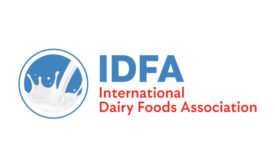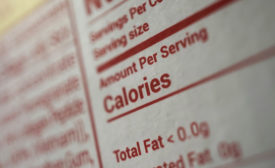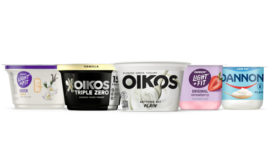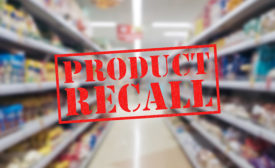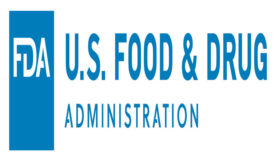Home » Keywords: » FDA
Items Tagged with 'FDA'
ARTICLES
Labeling: Rationalizing (negotiating) mix compositions, market positioning and more
Nutrient content/declarations, compositional and other finished goods objectives also discussed.
April 19, 2024
IDFA proposes recommendations for FDA recall process
International Dairy Foods Association recommends five steps.
December 28, 2023
How GFSI harmonizes global food safety practices
Rather than a set of rigid detailed standards, GFSI operates as a benchmark system.
December 26, 2023
FDA Foods Coalition formed
Made up of consumer advocates, food industry representatives, public health groups, and state and local regulators, the coalition will educate policymakers, media and the public about improving the governance of the FDA Human Foods Program.
October 26, 2023
FDA names first Deputy Commissioner for Human Foods
Program areas would include food safety, chemical safety and innovative food products, including those from new agricultural technologies, that will bolster the resilience of the U.S. food supply in the face of climate change and globalization.
August 23, 2023
Imagindairy earns self-affirmed GRAS status
In tandem, Imagindairy is opening its new and improved headquarters near Haifa, Israel.
August 17, 2023
Dropping allergen soft claims for accredited certification
Both food allergen labeling, and cross-contact prevention are at the forefront for obvious reasons.
August 1, 2023
Anderson-Negele PPR earns FDA letter of conformity
Distinction shows a particular device/system has been found to be compliant within the “Grade A Pasteurized Milk Ordinance.” PMO.
May 1, 2023
EVENTS
Industry
11/27/12
Rutgers University
Specific Location Given at Registration
New Brunswick, NJ
United States
Contact: Dalynn Knigge
Rutgers' Better Process Control School (BPCS) 4-day Training
Get our new eMagazine delivered to your inbox every month.
Stay in the know on the latest dairy industry trends.
SUBSCRIBE TODAYCopyright ©2024. All Rights Reserved BNP Media.
Design, CMS, Hosting & Web Development :: ePublishing
